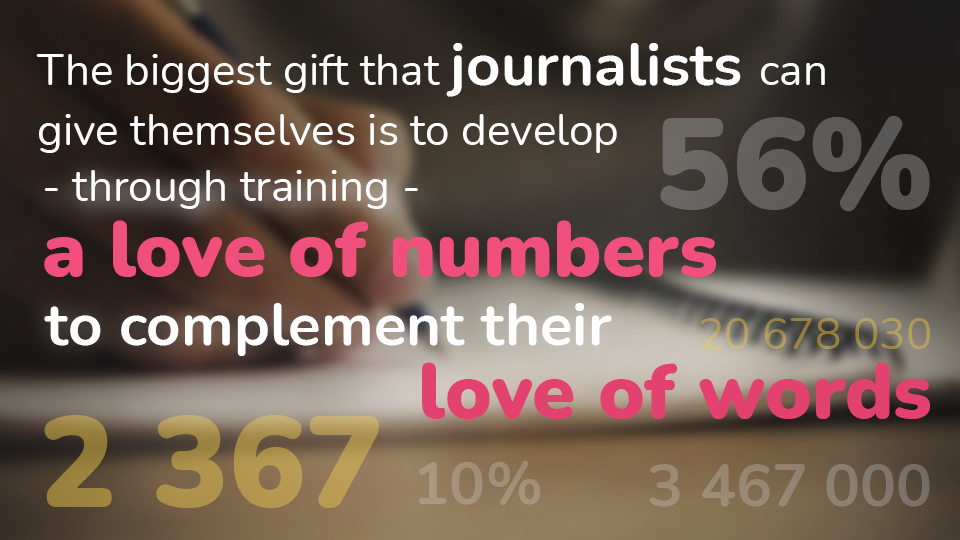“I’m not a numbers person” is a statement I have heard journalists make more often than I care to remember. I even read it this year in Caitlin Moran’s compelling and highly self-reflective book “More than a Woman”, in a chapter where she describes the dynamic between her and her brother, revealing that: “He has tried on many occasions to teach me basics of algebra. As I’m someone who didn’t even learn their 4x tables, he might as well be explaining Mozart to the cat. I’m a words person”.
Unfortunately, journalists’ frequent lack of confidence to engage with numbers is particularly worrying in a time of pandemic. When journalists do not engage sufficiently deeply with the data reported by scientists and politicians, they are unable to ask the really difficult questions about the rationale behind policy announcements that sometimes appear random. Even more worryingly, they are unable to hold politicians sufficiently to account for policies that are potentially damaging. When journalists don’t engage with data analysis, their COVID-related reporting is less able to provide compelling narratives to counteract the growing anti-COVID-vaccination misinformation that relies on emotionally galvanising but factually inaccurate anecdotes.
I have noticed that journalists often do not apply an audience-informed, data-driven lens when reporting on the pandemic. They sometimes fail to ask the challenging evidence-based questions about the impact of policies on different groups such as the elderly or the immunocompromised, on women, single mothers, ethnic minorities, children, teenagers, university students or many other groups. Too frequently, journalists focus on unpicking the narratives that are presented to them without generating new ones.
Let us take the case of Bulgaria, which is arguably an extreme. The problem with how Bulgarian news media has reported on the COVID vaccination programme is that the news reporting is often not well evidenced. It can be seen to be “pursuing scandal and views at the expense of clarity and understanding” and has frequently focused on the rare cases of vaccine failure, rather than on the millions of cases of vaccine success. I have not come across much, if any, solutions-focused data-investigative journalism that interrogates the hidden statistics to examine the mortality and morbidity rates of different population groups. In addition, not challenging people in power is also linked to the well-documented low levels of press freedom in Bulgaria, which results in a high level of dependence on political power.
More journalists globally need to become comfortable with interrogating statistics, especially in the context of an even bigger global story that audiences are yet to engage deeply with, namely the climate crisis. In his article poignantly titled “If you’re not a climate reporter yet, you will be: Covid-19 coverage offers lessons for reporting on the climate crisis”, Wolfgang Blau, a visiting research fellow at the Reuters Institute for the Study of Journalism at Oxford University, argues that every journalist should learn to interrogate basic climate change-related scientific facts and track some metrics, because, similarly to the pandemic, the climate story will soon permeate every aspect of the audiences’ lives. Knowing the basics of algebra and your times tables (not much more than that) is going to be of great help. But being offered training in data analysis is critical too. Federica Cherubini, head of leadership development at RISJ, recently tweeted her gratitude at being able to use Excel, which had been beyond her skillset for many years previously.

The biggest gift that journalists (and journalism schools) can give themselves is to develop - through training - a love of numbers to complement their love of words. This will boost journalists’ confidence in telling powerful evidence-based stories; increase their agency to craft narratives that truly challenge those of politicians; and equip them with the critical data lens needed to report on the existential stories of our times. Using data in storytelling will not only elevate journalists’ personal work and the profile of the profession, but will also increase audience trust in journalism and, through osmosis, strengthen democracy.






